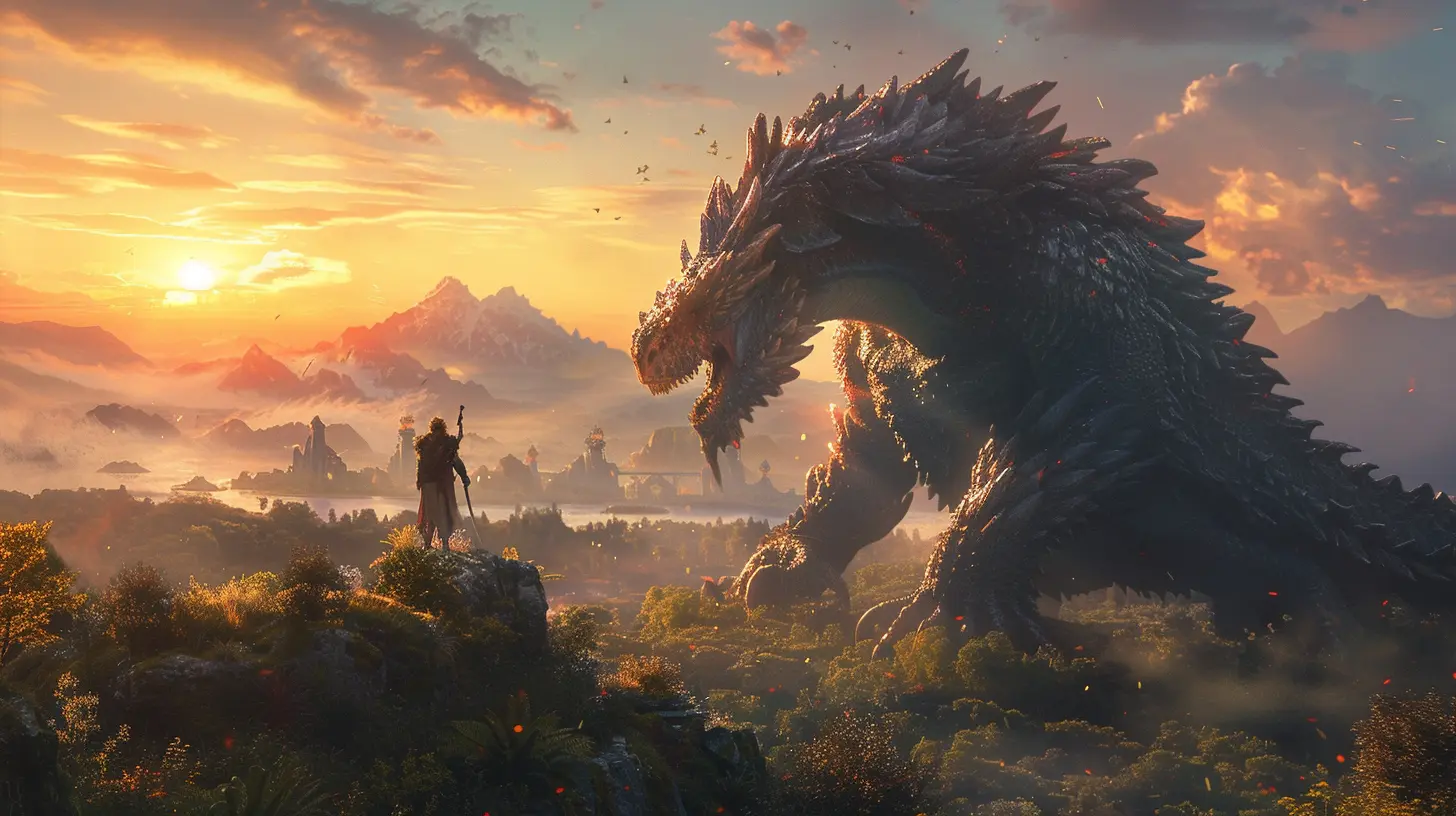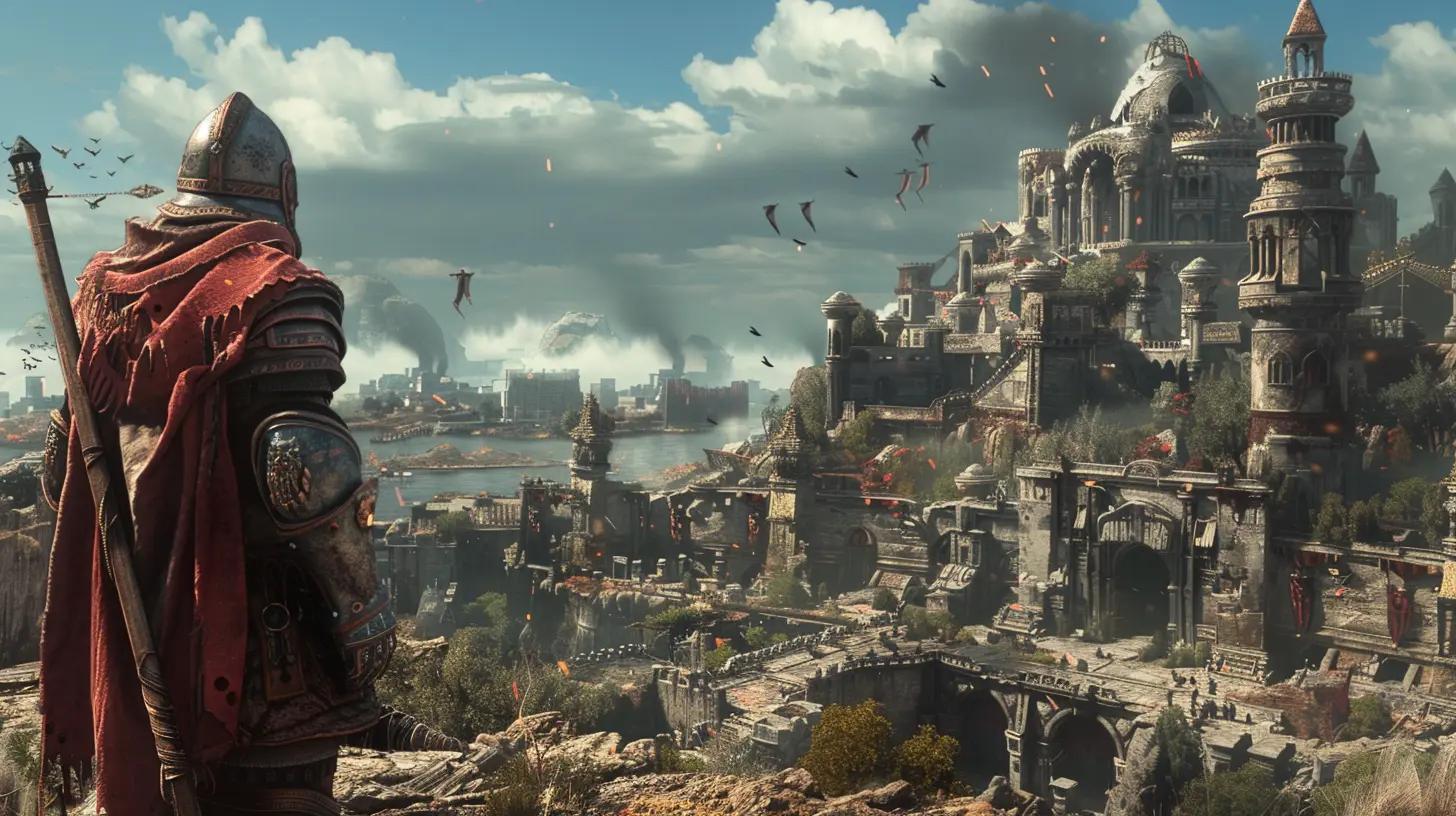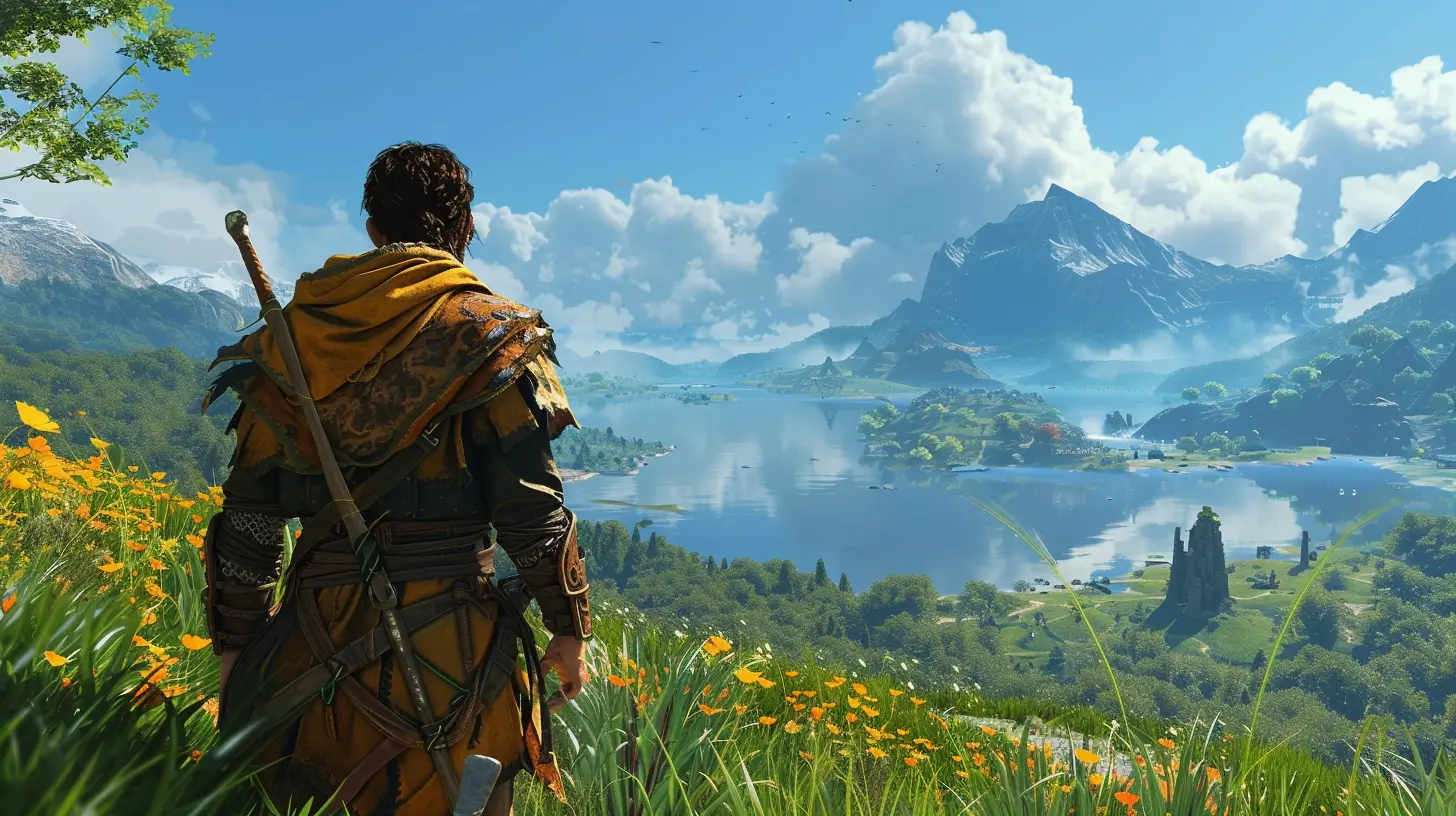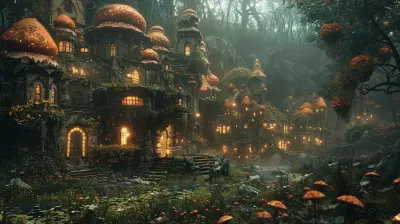What Is the Best Game Engine for Creating MMORPGs?
2 June 2025
So, you've got a brilliant idea for an MMORPG (Massively Multiplayer Online Role-Playing Game), and you're ready to dive into development. You want to build sprawling worlds, dynamic characters, and epic stories, but there's one big question standing in your way: What game engine should you use to bring your vision to life? Let’s break it down and uncover the best game engines for creating MMORPGs, so you can get started.
Game development can feel overwhelming, especially when you’re staring at a buffet of game engines. But don't worry—I’ve got your back. Whether you're a solo developer or leading a team, by the end of this, you’ll feel a lot more confident about choosing the right tools for the job.
What Makes a Game Engine Good for MMORPGs?
Before we dive into the contenders, let’s chat about what actually matters when it comes to MMORPG development. MMORPGs aren’t your typical games—they’re massive, complex beasts that combine storytelling, graphics, and (most importantly) online multiplayer systems. To create an MMORPG successfully, you’ll need a game engine that can handle the following:- Networking: This is the heart and soul of an MMORPG. You need robust multiplayer support for real-time interactions between hundreds, if not thousands, of players in the same game world.
- Performance: MMORPGs often feature huge open worlds and need to manage a lot of assets at once. Your engine should handle this without lagging like you're stuck in 2005 on dial-up internet.
- Scalability: As your game grows, so does your player base. The right game engine should allow your MMORPG to scale up smoothly.
- Customization: Every MMORPG has unique gameplay mechanics, so you'll need an engine that lets you tweak and tailor things to your liking.
With these factors in mind, let’s take a closer look at some of the top game engines developers are using to create MMORPGs.
1. Unity: The All-Around Contender
If you've dabbled in game development before, chances are you’ve heard of Unity. It’s one of the most popular game engines out there, and for good reason—it’s versatile, beginner-friendly, and has a huge developer community.Why Unity Works for MMORPGs
Unity comes equipped with a ton of tools that make MMO development easier. It has a built-in multiplayer framework, though you’ll likely need to rely on third-party plugins (like Mirror or Photon) to handle the high demands of an MMORPG. Its graphics capabilities are solid, and let’s not forget—you can build for multiple platforms (PC, mobile, consoles) without starting from scratch.Unity’s asset store is a lifesaver, too. Need some textures, animations, or even scripts for networking? You can probably find something pre-made. This can save you hours—or even days—of development.
Downsides of Using Unity
Now, don’t get me wrong, Unity is awesome. But it’s not perfect. For massive projects like MMORPGs, you might run into performance bottlenecks, especially if your code isn’t optimized. Additionally, its free tier has limitations that might be a dealbreaker for larger-scale games.Best For:
Indie developers or small-to-medium-sized teams looking for a flexible and relatively easy-to-learn engine.
2. Unreal Engine: The Powerhouse
If Unity is the jack-of-all-trades, Unreal Engine is the flashy sports car. This engine is known for creating jaw-dropping visuals, and it’s often the go-to choice for AAA game studios. But what about MMORPGs?Why Unreal Engine Works for MMORPGs
First off, Unreal Engine’s networking capabilities are top-notch. It has tools like Replication Graphs that make building complex online systems much smoother. Performance-wise, Unreal can handle massive worlds better than most engines, thanks to its ability to efficiently process large amounts of data.And then there’s Unreal Engine’s graphics. Want your MMORPG to have landscapes so gorgeous your players get lost just staring at the scenery? Unreal delivers. Plus, with its Blueprints system (a visual scripting tool), you can prototype gameplay mechanics without banging your head against endless lines of code.
Downsides of Using Unreal
The downside? Unreal can be intimidating. It’s a more complex beast to tame compared to Unity—especially if you’re new to game development. Also, Unreal tends to require more powerful hardware, which could raise your development costs.Best For:
Experienced developers or teams aiming for high-quality visuals and robust online systems.
3. CryEngine: The Underrated Gem
CryEngine is the dark horse of game engines. It’s powerful, beautiful, and often overlooked in favor of Unity or Unreal. But that doesn’t mean it’s not worth considering for MMORPGs.Why CryEngine Works for MMORPGs
CryEngine is famous for its realistic environments and lighting effects. If immersion is a big priority for your MMORPG, this engine delivers in spades. Its networking framework is solid, and its rendering capabilities make it a contender for games that require large-scale, open-world environments.One standout feature is CryEngine’s Sandbox Editor, which allows for real-time world editing. Want to tweak a landscape while seeing the changes instantly? CryEngine makes that possible.
Downsides of Using CryEngine
The learning curve for CryEngine is steep. Like Everest-steep. And while its tools are robust, the community support and resources are much smaller compared to Unity and Unreal. If you’re stuck, you might not find as much help online.Best For:
Developers focused on creating breathtakingly realistic MMORPG environments who don’t mind dealing with a steep learning curve.4. Amazon Lumberyard: The New Kid on the Block
Amazon Lumberyard is a relatively new engine built with MMORPGs and live-service games in mind. Fun fact: it’s actually based on CryEngine but has been heavily modified by Amazon.Why Lumberyard Works for MMORPGs
Lumberyard is deeply integrated with Amazon Web Services (AWS), which makes it a strong contender for MMO development. AWS provides some seriously scalable cloud-based servers, which can help with handling high player counts. And like CryEngine, Lumberyard shines when it comes to visual fidelity.Another cool feature? Lumberyard comes with Twitch integration out of the box. If you want to appeal to the streaming crowd, this might be a nice bonus.
Downsides of Using Lumberyard
Lumberyard is still pretty young, so it doesn’t have the same level of maturity or community support as some of the bigger engines. Also, its development tools aren’t as user-friendly as Unity or Unreal.Best For:
Developers who want a scalable solution tied into AWS and are comfortable with a newer, evolving toolset.5. HeroEngine: Built Specifically for MMORPGs
If you’re looking for an engine purpose-built for MMORPG development, HeroEngine should be on your radar. This toolset was literally designed with MMOs in mind.Why HeroEngine Works for MMORPGs
HeroEngine’s standout feature is its collaborative real-time development environment. Multiple developers can work on the same game world simultaneously—kind of like a Google Docs but for MMORPGs. It also handles a lot of the heavy lifting when it comes to networking, so you can focus more on gameplay and world design.Downsides of Using HeroEngine
While HeroEngine is great for MMO-specific features, it lacks the flexibility of engines like Unity or Unreal. If you want to create something beyond the traditional MMORPG mold, you might feel restricted.Best For:
Teams focused solely on MMORPG development who want a collaborative workspace.Final Thoughts: Which Engine Is Best for You?
At the end of the day, the "best" game engine for creating MMORPGs depends on your specific needs, experience level, and resources. For indie developers or smaller teams, Unity is a great starting point thanks to its ease of use and community support. If you crave AAA quality and have a team with experience, Unreal Engine will knock your socks off. Want something built specifically for MMORPGs? HeroEngine has you covered.Remember, no engine is a one-size-fits-all solution. Every choice comes with trade-offs. But here’s the good news—no matter which engine you choose, you’re taking the first step toward creating something epic. And honestly, that’s pretty awesome in itself.
all images in this post were generated using AI tools
Category:
Game EnginesAuthor:

Emery Larsen
Discussion
rate this article
3 comments
Casey McMahan
Game engines like Unity and Unreal Engine stand out for MMORPG development due to their robust tools and community support. Unity offers flexibility and ease of use, while Unreal excels in graphics and performance. Ultimately, the best choice depends on your team's expertise and project requirements.
June 16, 2025 at 4:08 AM

Emery Larsen
Thank you for your insights! Both Unity and Unreal Engine indeed offer unique strengths for MMORPG development, and choosing the right one should align with your team's skills and project goals.
Jett Murphy
In the realm where dreams collide, Engines hum with magic inside. Unity or Unreal, both shine bright, Crafting worlds that dance in light. Choose your muse, let passion steer, For every gamer's heart draws near.
June 6, 2025 at 3:29 PM

Emery Larsen
Thank you for your poetic insight! Dreams and passion are indeed at the heart of game development, and choosing the right engine can make all the difference in bringing those worlds to life.
Rivera McCollum
Great insights! Your passion for game development shines through!
June 5, 2025 at 3:35 AM

Emery Larsen
Thank you! I'm glad you enjoyed the insights!



